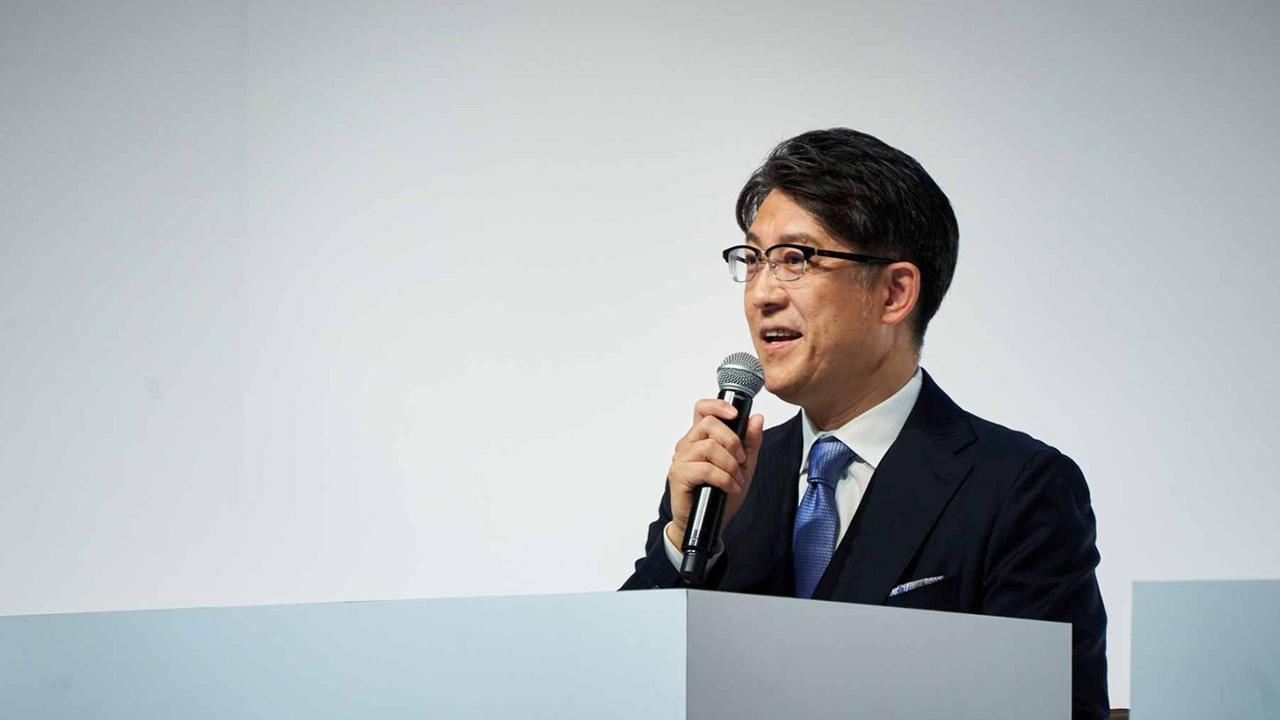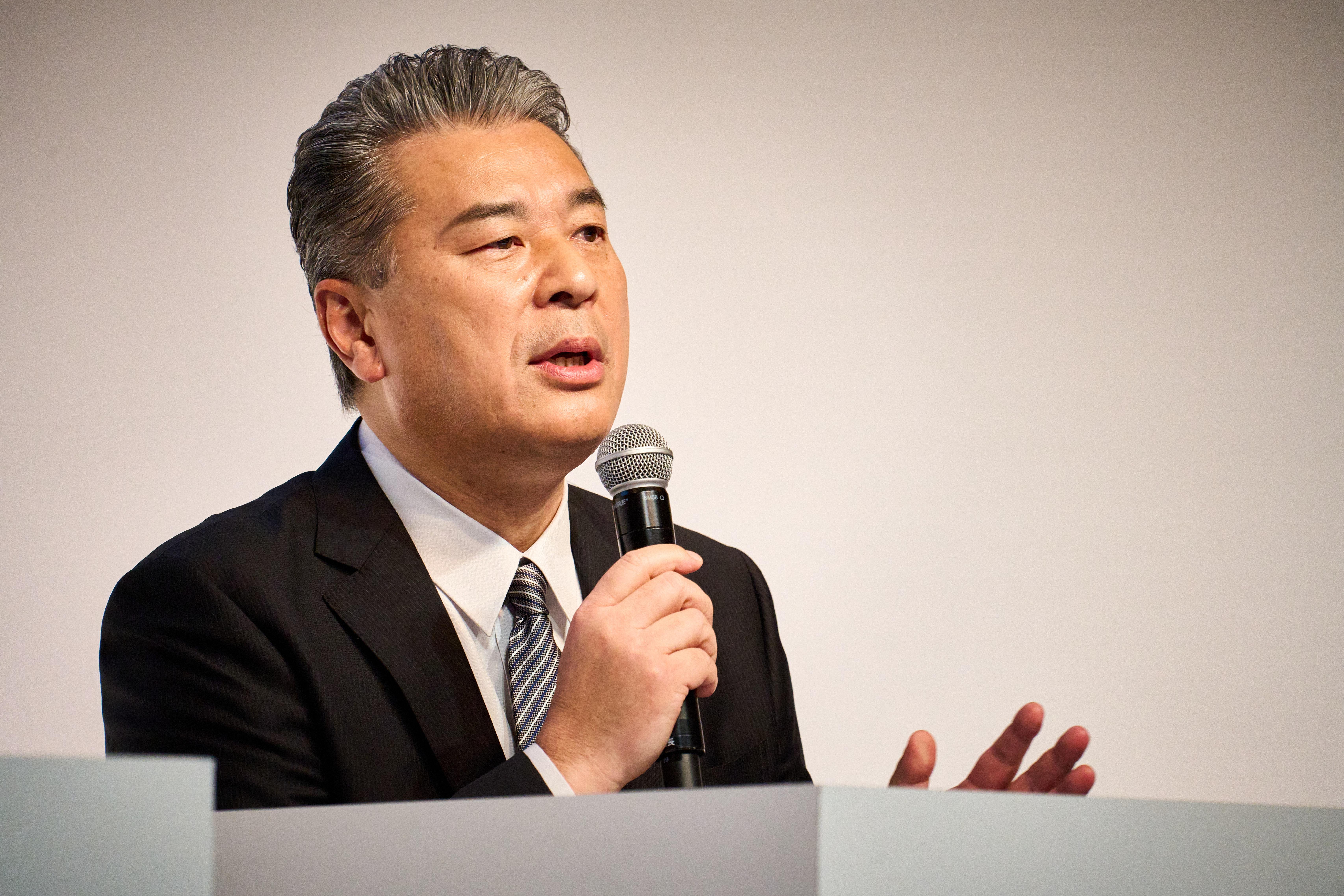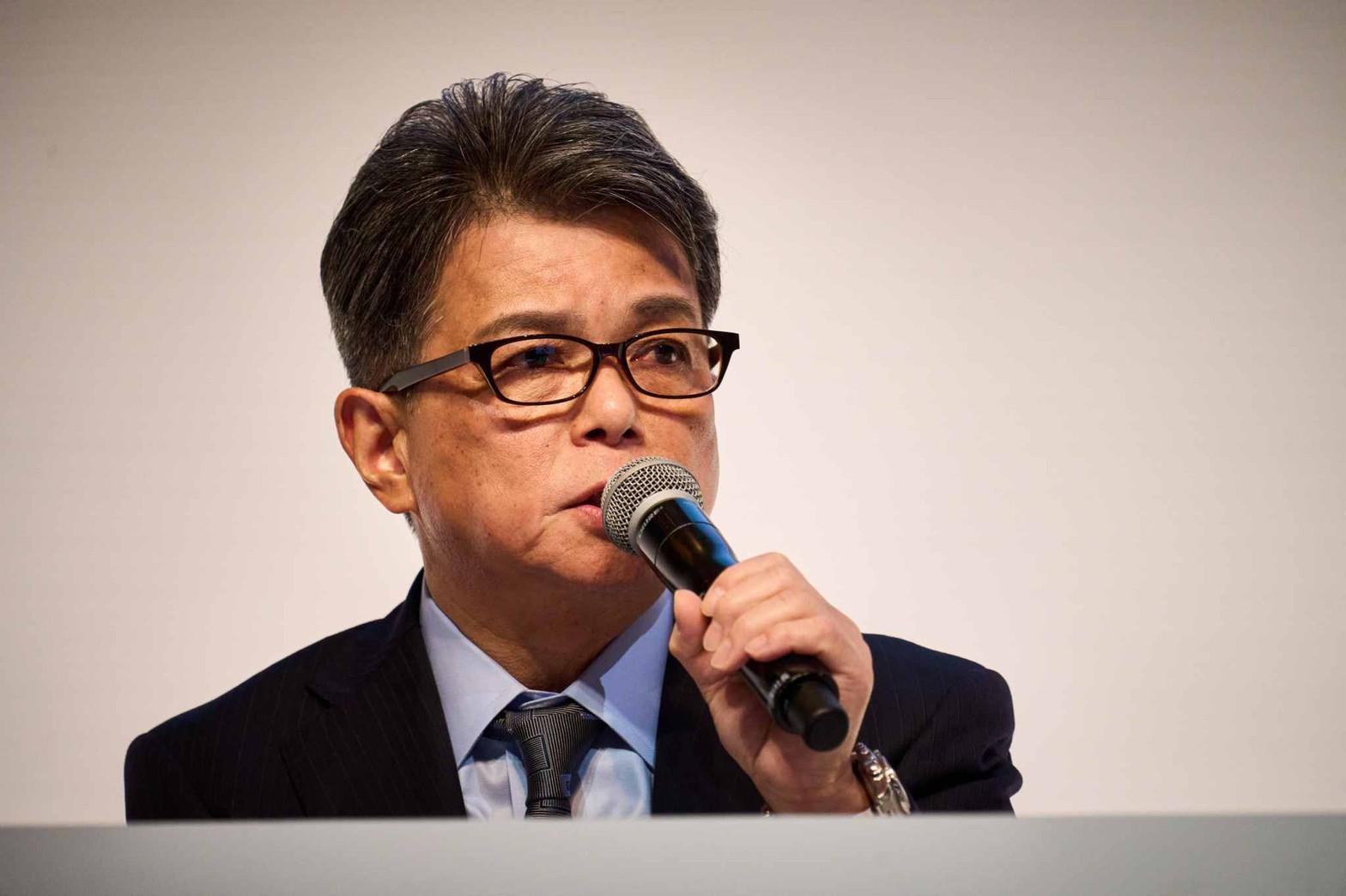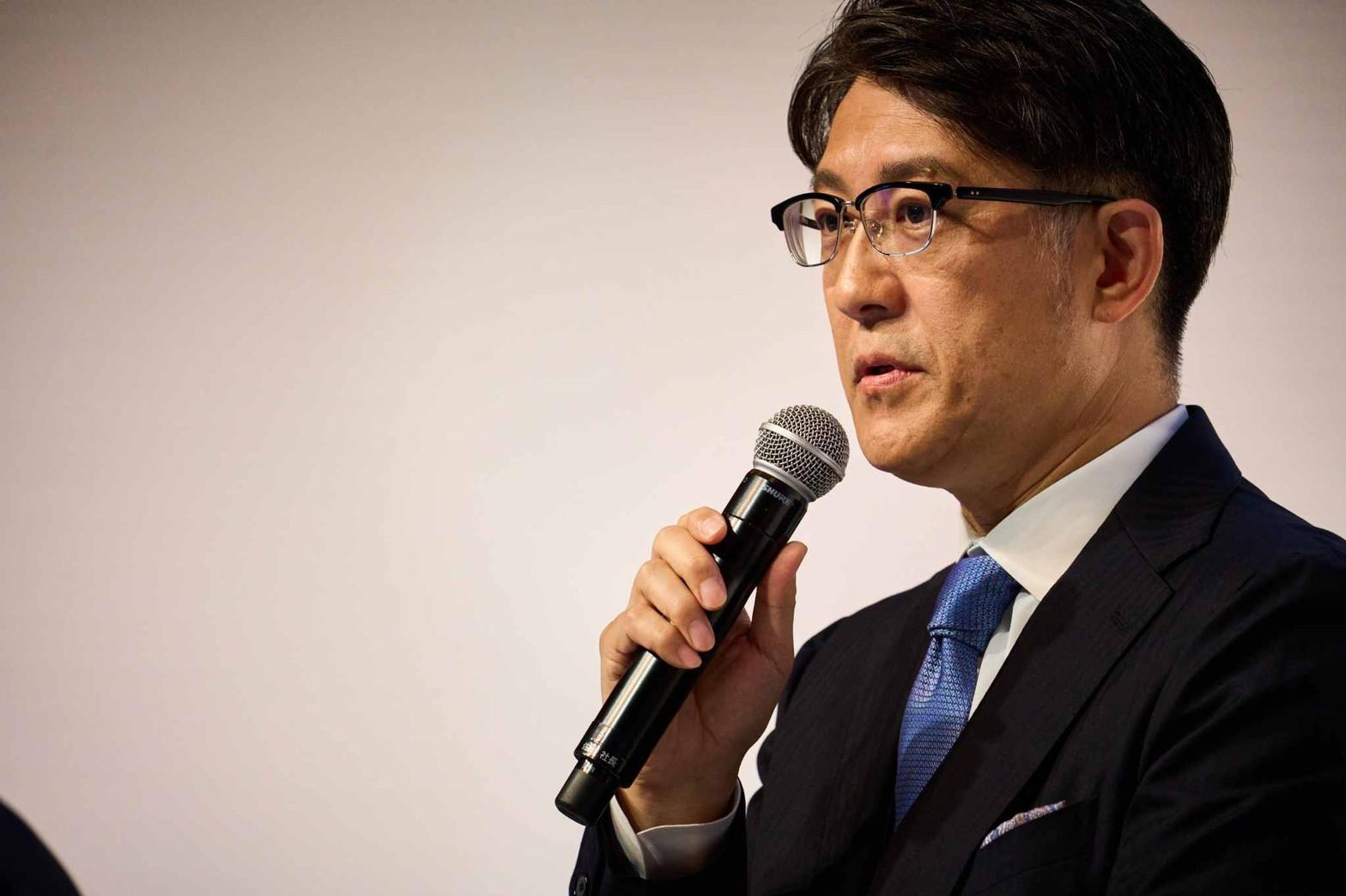
The questions and answer session at a recent conference dug deeper into two ideas expressed by the new management team: "carbon neutrality" and "expanding the value of mobility."
First Topic: Carbon neutrality
Most of the questions from the media at the press conference focused on Toyota's BEV strategy.
They offered up a series of questions probing deeper into the company's BEV strategy after the announcement of 10 new models to come by 2026, the annual sales target of 1.5 million units, the doubled cruising range of next-gen BEVs, and a new specialized unit being established. They were looking for details on plans and the company's response to various regional and national BEV policies.
--What is the timing of the launch and specific structure of the specialized next-gen BEV unit?
Vice President Nakajima

We'll be opening up a new world of BEVs by completely shifting our existing structure and creation process.
What we're trying to do is offer customers products that get their hearts racing.
Since this will break through our old framework and give us completely new challenges, we decided to create a specialized unit. We've already assigned a leader and are making progress in preparing the organization.
Work has already started, and we'll clarify the organizational structure after the Golden Week holidays. We hope you'll be watching for it.
--Last year, Toyota sold 26,000 BEVs. What kind of investment do you need to make to hit 1.5 million by 2026? How many BEV plants do you have? What is your battery production capability? Has the schedule been accelerated?
Vice President Miyazaki

We've been preparing for this since we announced the (2030 BEV sales) target of 3.5 million units.
We've not accelerated things at all. We've simply been progressing as planned with these new full BEVs coming in 2026 to hit the 1.5 million unit target.
We have not been referring only to HEVs and PHEVs in our multi-pathway approach. We've been preparing to expand choices with BEVs, as well.
You all might view it as slow, but we've simply been trying to find the right timing to say it.
You can't make BEVs if you don't have batteries, and so the main pacesetter has been preparing batteries. In that sense, the investment in battery supply has accounted for significant weight.
Compared to investments in past models, this has by far been the costliest area.
I think that we will have to consider dedicated battery plants going forward, but right now, we're in the final process of determining preparations to remain highly versatile and competitive in the future.
For BEV plants, as well, I think we'll be gradually adjusting plants over time until we can finally shape them into something ready to build true BEVs.
--The U.S. and China are leading the way in the electrification of cars. With Toyota’s position in the world, what does it need to win? At the same time, Europe—which has been leading the way with a BEV-only strategy—is shifting policies. What does that mean for Toyota, which is sticking to its full lineup strategy?
President Sato

What I want to reiterate is that “the enemy is carbon.” As a global company, we want to take solid steps to achieve the 2050 goal by starting with realistic, immediate actions to reduce global emissions.
Looking at the world from that perspective, we have places where renewable energy use is moving forward with infrastructure in place and with growing demand, while other regions do not have those. It’s an uneven situation. We must not ignore that reality.
Toyota does business globally, which is why having a multi-pathway approach that doesn’t leave anyone behind is so important.
At the same time, we understand the utility of electrical energy, particularly when thinking about energy conversion efficiency, so we are actively pursuing the development and introduction of BEVs.
Nothing has changed in our stance, but we are also aware that we haven’t been fully transparent in sharing concrete facts regarding BEVs.
We will carry on putting emphasis on practical ways to implement emissions reductions and continue promoting initiatives that fit each region.
As for the second question, I took that to be in reference to the European Commission’s decision regarding e-fuels. I think there are aspects of the draft that seem quite reasonable in terms of current industrial structures and social environment.
At the same time, there are still issues with the e-fuel generation process, and many technical elements remain unresolved.
To make that a viable option, I think there remains a lot of technical development to pursue, not only in the energy industry but in connection with the automobile industry as well.
So, we will continue striving daily to develop all kinds of technology and discover new choices without straying from our core.
--Under the recent U.S. Inflation Control Act, finished vehicles imported from outside North America will be exempt from BEV tax benefits. What is Toyota's response to that, as a company that exports so many vehicles? If you increase production within North America, will that impact domestic plants or employment?
Vice President Miyazaki
We have production businesses in various places and want to solidly protect employment, including at our suppliers and supply chains.
Our overall policy is to adjust vehicle production to meet changing local demand, and as demand increases, we will promote local production. In the U.S., we think there is a strong factor pointing toward replacing BEVs with HEVs and PHEVs.
First, we are considering adjusting the balance within current production levels, and if factors grow further, we will consider how to respond then.

